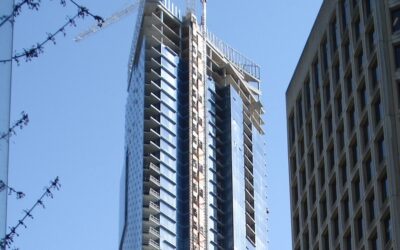Ontario Court Confirms Coverage for Windstorm
In a recent decision of the Ontario Superior Court of Justice, the court interpreted a policy in which there was coverage for a “windstorm”. The policy excluded loss or damage resulting directly from “settling”. The term “windstorm” was not defined in the policy, so the court applied the ordinary dictionary definition of a “windstorm”. The parties each presented factual evidence relating to the cause of the loss. Ultimately, the court found that the plaintiff’s evidence was more thorough and persuasive and ruled that the cause of the loss was a “windstorm”, not “settling”.
Prior Acts Exclusions Bar Claim under Professional Liability Policy
In Puri Professional Corporation v. Lloyd’s Underwriters, an Ontario judge found that the underwriters of a professional liability policy had no duty to defend their insured in a lawsuit arising out of tax advice the insured gave to one of its clients. The lawsuit was excluded by virtue of the policy’s prior acts exclusions, which were put in place to ensure the Underwriters bore no liability for events occurring before they took over from the insured’s prior professional liability insurer. As discussed below, this case proves why it can be valuable for an insured to retain coverage counsel before moving to a different liability insurer, to try to avoid the coverage gap that occurred in this case.
Ontario Judge Decides Competing Claims under Legal Expense Insurance Policy
With every passing year, the expenses plaintiffs incur to prosecute civil claims increase, such that the cost of litigation is now beyond most individuals and many small businesses. Even those who represent themselves must often incur significant expenses to bring their claims to trial, including costs for examination transcripts and independent expert witnesses often necessary to prove the claim. Moreover, if a claim is dismissed, a court will generally require the plaintiff to pay a portion of the defendant’s legal costs, which are often significant. Increasing litigation expenses and costs Judgments have led to legal expense insurance becoming more prevalent.
Court of Appeal Confirms Plain Policy Language Applies Over Pragmatism
The Ontario Court of Appeal released a brief decision on February 3, 2025, that underscores an important principle of insurance law: plain and undefined words are to be understood by their ordinary meanings. That applies even if seemingly unintended consequences may result.
British Columbia Court of Appeal Interprets Policy Definition in Favour of Insured
In Honeywell International Inc. v XL Insurance Company Ltd., the British Columbia Court of Appeal ( “BCCA”) overturned an application judge’s decision. The BCCA found in favour of an appellant manufacturer seeking a defence under a liability policy placed in relation to a construction project (commonly known as a “wrap up policy”). The BCCA found that the manufacturer qualified as an insured under the policy and directed a trial of several other coverage issues not yet decided.
BC Court of Appeal Upholds Coverage Denial Under Subsidence Exclusion
In a recent decision, the British Columbia Court of Appeal (“BCCA”) interpreted a clause that excluded loss or damage caused directly or indirectly by “subsidence”. The court upheld the trial judge’s finding that the clause was unambiguously worded and clearly excluded coverage for the loss. In addition, the BCCA also agreed with the trial judge’s finding that the policy’s Extended Water Damage Endorsement did not extend coverage on the facts of the case.
Court of Appeal for Ontario Upholds Punitive Damages Award Against Insurer
In Truong v Jeweler’s Mutual Insurance Company, the Court of Appeal for Ontario upheld a trial judge’s decision, finding no reversible error in the judge’s decision that the insurer’s conduct amounted to bad faith and warranted an award of punitive damages.
Ontario Court of Appeal Upholds Finding that Insurer Waived Policy Requirement
In a recent decision, the Ontario Court of Appeal had to determine whether the trial judge erred in finding that an insurer underpaid its insured for damaged personal property. The ONCA dismissed the insurer’s appeal, refusing to interfere with the trial judge’s assessment of the value of the insured’s claim or with his conclusion that the insurer had waived performance with a clause in the policy requiring the insured to provide a sworn “proof of loss” form.
Ontario Court Applies Exclusion Clause to Bar Statutory Claim for Unpaid Wages and Benefits
In a recent decision, the Ontario Superior Court of Justice (ONSC) considered the applicability of a prior acts exclusion within a directors and officers liability insurance policy for a claim brought against a company that later filed for protection under the Companies’ Creditors Arrangement Act (“CCAA”). The ONSC found that the claim pertained to events that preceded the policy period, which the endorsement excluded.
Newfoundland Court Finds Insured Under No Obligation to Engage in Appraisal
In a recent decision, the Newfoundland and Labrador Supreme Court (NLSC) refused to compel the insured to engage in an appraisal of a loss under a property insurance policy. Due in large part to an apparent policy drafting error, the NLSC rejected the insurer’s argument that the appraisal process was mandatory.










